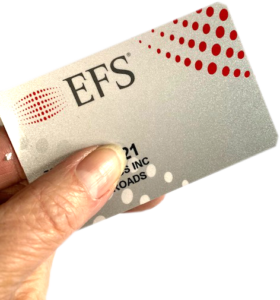While you are more than sixty years of age, own your home, and need finance to have old-age, unlocking the security of your house can be a financial solution. Before you are doing, you need to consider several trick considerations.
In this post

- What exactly is household guarantee discharge?
- Style of domestic equity launch money
- Impacts of house collateral discharge financing on Ages Your retirement
- How come they apply at upcoming aged care and attention will cost you?
- Here’s a choice: Domestic Equity Supply Plan
- Contrary home loan vs HEAS: What type if you?
- Do you really nevertheless log off a heredity?
Household collateral is the current market value of your property, minus people a great financial otherwise loan balance you’ve got facing they. Since you repay your own home loan, the equity expands. Once you will be totally repaid, you’ll have complete collateral.
What’s domestic collateral release?
Home equity release is actually a manner in which allows people to faucet the new wealth fastened inside their assets instead of selling they. It is primarily targeted at Australians aged 60 or old whom will dsicover by themselves asset-steeped however, dollars-bad, as it is built to bring an approach to enhance their money, loans a much warmer senior years, or coverage medical or other living expenses while they are still living on property.
The level of guarantee which are often put-out depends on several activities for instance the value of the house, the newest homeowner’s many years, while the particular rules of one’s security discharge merchant otherwise strategy.
The age demands means that the brand new individuals from house collateral release strategies have likely depending substantial security inside their property. Basically, the fresh earlier youre, the greater amount of money you might probably release.
However, it is vital to remember that initiating this new equity in your home involves several threats which can impact the property and you can benefit entitlements.
Form of house guarantee launch funds

Some of the guarantee release plans (except HEAS, much more about one to afterwards) are thought borrowing from the bank agreements meaning that regulated of the Australian Bonds and Opportunities Percentage (ASIC). Providers need hold a keen Australian Borrowing Licence (ACL) to offer these materials.
«It is required to see the different types of household collateral release activities available. You really have their reverse mortgage loans and you can home reversion techniques, for every single having its advantages and disadvantages,» C.L. Mike Schmidt, legal counsel from the Schmidt & Clark LLP, informed InfoChoice.
Contrary Financial
An opposing mortgage is a kind of loan that allows residents aged sixty and over so you can borrow funds using the equity when you look at the their property because coverage. Opposite mortgage loans are supplied by the private loan providers and you may typically have high rates of interest and fees.
Inside system, the minimum you can draw is usually $10,000 and very could be 15-20% of your own value of your house. According to your bank coverage, you might do the amount your borrow just like the a consistent money load, a lump sum, otherwise a mixture of both.
You since the homeowner hold control in your home and, rather than during the typical mortgage loans, needn’t make payments if you find yourself lifestyle indeed there. Yet not, the eye energized ingredients over time that is added to the dominating loan amount – this can easily increase the financing really worth and you can deteriorate your leftover security.
As such, that isn’t unusual your security usually drop off as your personal debt increases along side loan’s lives. When this happens, «this new beneficiaries of the borrower can get inherit smaller, given that a serious portion of the property may be used to repay the mortgage,» Mr Schmidt told loan places Cottonwood you.
The principal in addition to gathered desire try paid down when happens day new borrower or even the property sells the property, or when the citizen movements away or becomes deceased.

 ENG
ENG